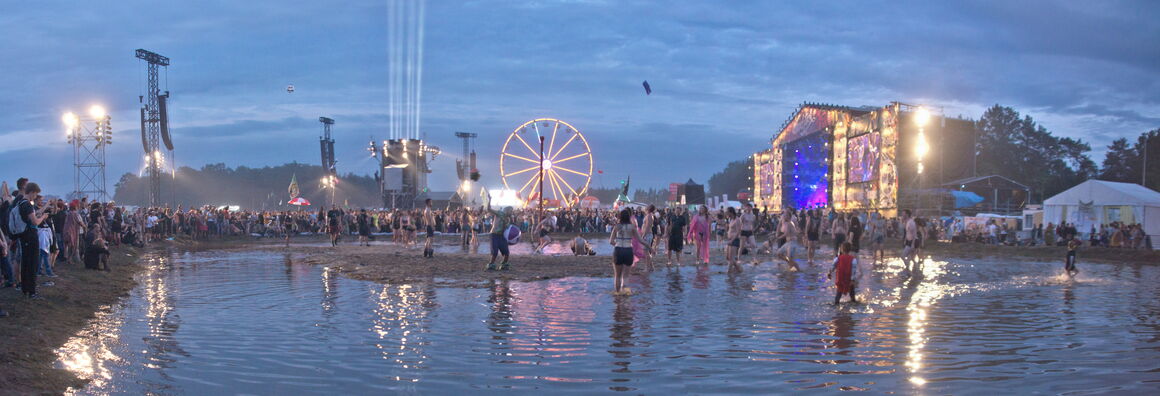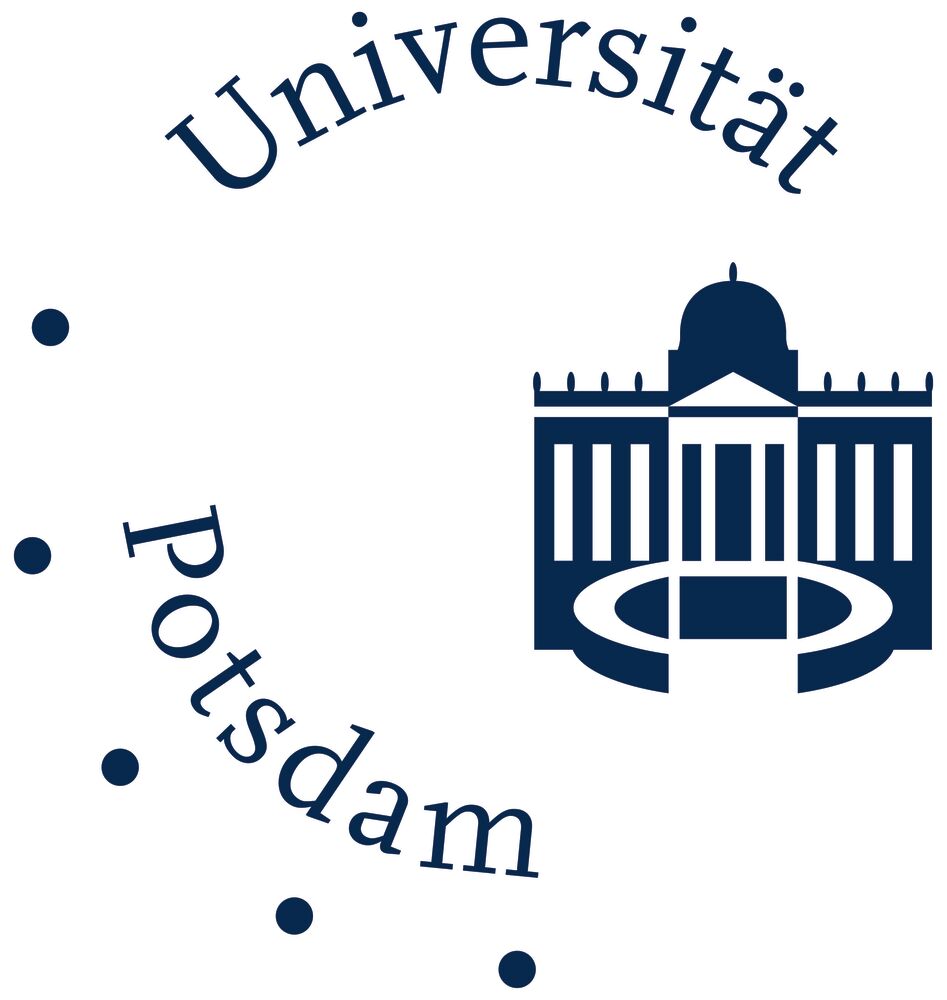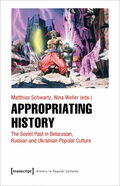
Adjustment and Radicalisation. Dynamics in Popular Culture(s) in Pre-War Eastern Europe
Since the 1980s, popular culture has fulfilled a number of specific functions in Eastern and East-Central Europe: it served to mediate Western trends, images, and stories while also redefining national, religious, or state-socialist symbolisms and narratives. Regarding models of society, family, home, and other identities, popular culture has the potential to link notions of modernity, zeitgeist, and material wealth with both progressive and conservative values. It may contribute to a subcultural, oppositional, or dissident radicalisation, but also to a rather uncritical consumerism and normalisation of nationalist discourses. Thus, popular culture emerges as a vehicle for both collective wishes and dreams, latent frustrations and fears. From a cultural studies perspective, it is particularly interesting to examine the aesthetic and medial resources used in popular cultural products and practices and how they become politically effective, thus shaping the social debates within these cultures. To avoid a one-sided observation of popular culture as a form of counterculture and “resistance” against cultural hierarchies and structures of power, we must consider its problematic potentials. These may not only be found in popular culture’s commercialisation, but also in populist radicalisation and a discursive adaptation to political power relations. As both an indicator and a booster of societal moods, popular culture plays a key role in understanding socio-political developments.
This joint project explores the developmental dynamics of popular cultures in Belarus, Poland, Russia, Ukraine, and Hungary since the 1980s from an interdisciplinary and a comparative perspective. Headed by the ZfL and in cooperation with the Leibniz Institute for the History and Culture of Eastern Europe (GWZO), the Leibniz Centre for Contemporary History (ZFF), and the Professorship for Slavic Literature and Cultural Studies (with a focus on Polish Studies) at the University of Potsdam, the project will conduct a series of case studies to research popular culture phenomena and genres. The subprojects take on a literary, historical, or culture and media studies perspective to address popular-cultural phenomena and figures in different genres: from literature, film, and the fine arts to TV shows, folk and popular music, videos, memes, murals, and graffiti to political journalism and social media. The comparative, interdisciplinary examination of popular-cultural products and trends promises new insights into their dynamics—from the euphoric awakening of democratisation in the 1980s and 1990s to the current rise of nationalist ideologies and right-wing populist or authoritarian political structures. Furthermore, the project’s layout allows us to map out the similarities and differences between the analysed late and post-socialist national popular cultures and their development.
Beyond the work in the individual subprojects, the joint project will build an international research network to obtain a better universal understanding of general dynamics and operating principles of popular culture in the light of digitalisation, globalisation, and their respective conditions.
Fig. above: “Przystanek Woodstock” festival 2016, Kosztrzyn nad Odrą, © Jakkolwiek, licence CC BY-SA 4.0 Deed
Project group: Daria Ganzenko (ZZF), Indira Anna Hajnács (GWZO), Aleksandra Szczepan (UP), Nina Weller (ZfL)
Coordinators: Aleksandra Szczepan, Nina Weller
Project website: popular-dynamics.org
Subproject(s)
Partisans, Cossacks, and Rebels. Figurations of Resistance in Eastern European Popular Cultures
Associate researcher: Nina Weller
Since the end of the Soviet Union, dealing with the national and state-socialist history has been a subject of controversial debate throughout its successor states. Popular culture formats play a particularly important role in reflecting this past. In order to redefine the relation between “self” and “other,” between power and resistance in the spheres of culture, ideology, and politics, these formats often revert to historical myths.
This subproject explores prominent figures of resistance in Belarussian, Ukrainian, and Russian popular culture (film, literature, comics, music, videos, etc.) such as the partisan, the Cossack, the rebel, or the conspirator. It analyses the functions ascribed to these figures by different social and artistic actors between the 1960s and 2020s in the determination of historical heritage and in the reappropriation of history in the context of their own historical positioning or emerging protest movements. What symbolic role do they fulfill in the political description of both self and others? To what extent are they depicted in the media as representatives of adjustment or, on the opposite, of dissidence, radicalisation, or even revolt? How are such figurations of historical myths revised or instrumentalised, where have their symbolic signifiers changed through time under Soviet, national, imperial, or also postcolonial auspices? What is the specific character of popular cultural depictions of the emancipative or, on the contrary, reactionary traits of such figures of resistance?
You Will Never Walk Alone? Civil and Military Imageries of Polish Popular Culture since the 1980s
Associate researcher: Aleksandra Szczepan
The subproject analyzes contemporary Polish popular culture through the lens of two complementary modes, namely the “military” and the “civil.” The military mode of collective memory and identity denotes forms of community that are patriarchal, hierarchical, exclusively nationalistic, and based on the logic of ownership and conflict. It is grounded in traditions of national uprisings, military rebellions, or male-dominated political opposition movements during the communist era, and epitomized in the nationalistic Independence March held annually in Warsaw. The “civil” mode, on the other hand, stands for “unspectacular” forms of social interaction such as empathy, civility, and horizontal solidarity. It has been present in Polish collective imagery in much more discrete and peripheral ways but emerged fully during the women’s protests that erupted in October 2020 in response to the decision of the Constitutional Court to ban almost all abortions. These protests, which were widespread and topographically ubiquitous, creatively employed the Polish national canon and the means of popular culture to advocate for inclusive patterns of building community, expressed aptly in the protests’ main slogan: “You will never walk alone.”
The project proposes to trace the “military” and “civil” modes of “Polishness” in various forms of Polish popular culture such as literature, film, theater, art, public performances, video games, music, fashion, and social media phenomena since the 1980s. It examines their genealogy, class, gender, and geographical conditions, as well as their constant symbolic exchanges.
Joke after Joke: Russian Verbal Comedy Genres from Late Socialism to the Post-Soviet Period
Associate researcher: Daria Ganzenko
This subproject focuses on various forms of Russian language verbal humour that played a significant role in the tradition of Russian humour and in the development of popular culture. Humourous routines and satirical monologues performed by comedians on television or at concert venues enriched the entertainment stage (estrada) and contributed to both indoctrination and socio-political critique in 20th-century Russian society. Stand-up comedy, one of the most popular genres in contemporary Russia, draws on this legacy and reveals its continuous ambivalence. While stand-up programmes broadcast on Russian TV often reinforce the authoritarian, xenophobic, and traditionalist discourses at the center of Russian cultural policy, independent or alternative stand-up comedy serves as an effective means to challenge official narratives. In both cases, comedy performances significantly shape the audience’s worldview and self-perception while also revealing social, cultural, and political conventions and values. By creating a particular type of comedic subject and stage persona, modern Russian stand-up comedians, in the tradition of their predecessors, actively contribute to the audience’s subjectivation.
By analyzing the comic routines and performances of the most influential Soviet and post-Soviet Russian comedians, this subproject traces the continuities and ruptures in the evolution of verbal humour in Russian over the past 80 years. Considering Soviet and post-Soviet traditions and forms of verbal humour within various contexts, including the history of popular culture, media, and the global landscape of the production of humourous formats, it proposes a multilayered analysis of Russian verbal comedy genres and their transformation throughout late Socialism and the post-Soviet period.
Projecting Meaning onto Folklore. Dynamics of Reinterpretations of Cultural Heritage in Hungary
Associate researcher: Indira Anna Hajnács
One and the same folk song may be heard at a right-wing conservative party conference, in a Hungarian dance house in Canada, in a concert hall, or at a psytrance festival. And yet, all of these fundamentally different recipients may recognize themselves in these songs. Throughout history, the attempt to integrate the popular culture of the Hungarian rural population into the concept of a national culture repeatedly led to reinterpretations of the country’s cultural heritage. At the same time, the contours of “folklore” remained fuzzy: what counted as folklore always depended upon socioeconomic, political, and cultural conditions.
This subproject explores the different booms in the popularisation of Hungarian folklore since the second half of the 20th century. On the basis of ethnosemiotic analyses of selected practices, the interpretive patterns and dynamics of reinterpretation are analyzed with regard to their social, economic, and political backgrounds. Special attention is given to the revitalisation of folklore in music production. What different, often opposing narratives are associated with Hungarian folk songs today? Which existing and which new power relations are symbolically supported through popular music?
Popular Culture and (Right-Wing) Populism
Associate researcher: Magdalena Marszałek
This subproject explores the interplay of populist politics and developments in popular culture in Eastern Europe with a special focus on Poland. Etymologically, populism and the popular share the same roots (lat. populus, “the people”; popularis, “popular”); both political populism as well as popular culture suggest—not least through a rejection of elitism—a particular “proximity to the people.” The increasing “medialisation” of politics, especially in times of social media, raises the question of the specific entanglements of populist and popular cultural performances: what alliances are there between popular culture and political populism? How do populist politics resonate in popular culture? Where does popular culture oppose populist politics?
The right-wing populists generally articulate clear-cut cultural policy goals. They are interested in broad areas of popular culture, which—once they come to power (as in Poland in the years 2005–2007 and 2015–2023)—, they attempt to control financially and appropriate for their own political purposes. This includes music festivals, the reenactment movement, or popular TV formats.
The subproject thus explores instances of mutual reinforcement between popular cultural modes of expression and populist power strategies as well as potential contradictions and rifts within the practices and discourses of the right-wing conservative and nationalist liaison between popular culture and populism.
The project will also address the question of how cultural studies and the study of populism may profit from one another: for some time now, populism research has repeatedly argued that, alongside “hard” criteria such as economics or demographics, cultural aspects should also be taken into account when researching and explaining the current rise in populism; and, conversely, a look at popular cultural and populist alliances may highlight the processes of politicisation in popular culture that has received little attention within cultural studies to date, thus providing new impulses for the discussion surrounding the main subject of cultural studies.
Mistrust and Contempt. Popular Television Series and Late-Night Shows in a Changing Medial and Social Landscape
Associate researcher: Matthias Schwartz
As a dream factory and a medium of truth, TV continues to play a key role in the formation of imaginaries, political self-image, and the social positioning of its audience. Digital media formats such as series and political talk shows can develop an enormous pull and mass impact, lastingly shaping worldviews and attitudes towards reality. One example would be the success of Volodymyr Zelenskyy, who won the presidential election in Ukraine in 2019 after having already garnered national popularity as a TV actor and comedian. These media formats often cater to a widespread mistrust of those in power, they stir up fears of change or resentment against alleged foreigners which they translate into exciting plots and catchy stories.
Drawing on various television series and late-night shows from Poland, Russia, and Ukraine, this subproject explores how these media formats shape ideas about society, the individual, and political action. The aim is to move beyond specific case studies and gain more specific insight into the transformation of popular culture formats and their design from a diachronic and comparative perspective.
Publications
Appropriating History
The Soviet Past in Belarusian, Russian and Ukrainian Popular Culture
Matthias Schwartz
- In der Finsternis des Krieges. Der ukrainische Bestseller-Autor Illarion Pavliuk, in: ZfL Blog, 18 Dec 2025
- In a Lad’s World. A Popular TV Series and Social Media in the Shadow of the Russo-Ukrainian War, in: Философия – Filosofiya – Philosophy 33.3 (2024), 98–110
- Introduction: Popular Culture and History in Post-Soviet Nation States, in: Matthias Schwartz, Nina Weller (eds.): Appropriating History. The Soviet Past in Belarusian, Russian and Ukrainian Popular Culture. Bielefeld: transcript 2024, 11–26 (with Nina Weller)
- Come and See, Once Again. A Russian Television Series on the Seventh Symphony in Defeated Leningrad, in: ibd., 265–290
- In der Welt der wilden Kerle. Eine populäre Serie im Zeichen des russisch-ukrainischen Krieges, in: ZfL Blog, 12 Jul 2024
Nina Weller
- Drei Fragen an … Nina Weller, Evangelische Akademie Tutzing, 28 Oct 2024
- Introduction: Popular Culture and History in Post-Soviet Nation States, in: Matthias Schwartz, Nina Weller (eds.): Appropriating History. The Soviet Past in Belarusian, Russian and Ukrainian Popular Culture. Bielefeld: transcript 2024, 11–26 (with Matthias Schwartz)
- Partisan, Anti-Partisan, pARTisan, Party-Zan, Cyberpartisan. On the Popularity of Partisanhood in Belarusian Culture, in: ibd., 155–185
- URIS Workshop: Documenting War in Ukraine in Comics (report)
Events
Imagined Pasts, Invented Traditions
Yerevan State University, 1 Alek Manukyan St, 0025 Yerevan, Armenia
Sofiya Filonenko: Contemporary Ukrainian Bestseller: Celebrities, Trends and Readership
Leibniz-Zentrum für Literatur- und Kulturforschung, Eberhard-Lämmert-Saal, entrance Meierottostr. 8, 10719 Berlin / hybrid
Potential Solidarities. (Popular) Cultural Alliances and Political Engagements with and within East-Central Europe
University of Potsdam, Am Neuen Palais 10, house 8, room 0.60/0.61, 14469 Potsdam / Einstein Forum, Am Neuen Markt 7, 14467 Potsdam
Common Resentments, Diverging Plots: Forms and Functions of Popular Conspiracy Culture in Eastern Europe
Leibniz-Zentrum für Literatur- und Kulturforschung, Ilse-Zimmermann-Saal, Pariser Str. 1, 10719 Berlin
Eliot Borenstein (NYU): Speak of the Devil. The Putinist Crusade against Satan at Home and Abroad
Leibniz-Zentrum für Literatur- und Kulturforschung, Eberhard-Lämmert-Saal, entrance Meierottostr. 8, 10719 Berlin
Literatur in Tamvydat und Digvydat
University of Graz
Nina Weller: Der Partisanenmythos und seine Reise durch (populär)kulturelle Aneignungen und Umkodierungen
University of Graz
Digital Tools, Radical Views, Appealing Aesthetics. Comparative Approaches to Popular Culture from Eastern Europe
Leibniz-Zentrum für Literatur- und Kulturforschung, Ilse-Zimmermann-Saal, Pariser Str. 1, 10719 Berlin
Horror & Melodrama: Die sowjetische Vergangenheit in der Populärkultur von Belarus, Ukraine und Russland
Leibniz-Zentrum für Literatur- und Kulturforschung, Eberhard-Lämmert-Saal, entrance Meierottostr. 8, 10719 Berlin
Matthias Schwartz: ‘Kresy’ as a Combat Zone: Ukrainian, Belarusian, and Russian Borderlands in Poland‘s Popular Culture
GCSC (International Graduate Centre for the Study of Culture), Otto Behaghel Str. 12, 35394 Gießen
Nina Weller: Partisanen, Kosaken und Rebellen. Figurationen des Widerstands in osteuropäischen Populärkulturen
Humboldt-Universität zu Berlin, Department of Slavic and Hungarian Studies, room 5.57, Dorotheenstr. 65, 10117 Berlin
Matthias Schwartz: “Liebe in Ketten”. Zur gesellschaftspolitischen Funktion von Populärkultur am Beispiel aktueller polnischer Fernsehserien
Humboldt-Universität zu Berlin, Department of Slavic and Hungarian Studies, room 5.57, Dorotheenstr. 65, 10117 Berlin
Matthias Schwartz: Selenskyj und die Serie “Diener des Volkes”: Zum Verhältnis von Unterhaltung, Populismus und Politik in zeitgenössischen Populärkulturen
University of Hamburg, main building, Edmund-Siemers-Allee 1, Flügel Ost, room 221, 20146 Hamburg
Nina Weller: Osteuropaforschung in Zeiten des Krieges: Öffentlichkeit, Aktivismus, Selbstbefragung
Leibniz-Zentrum für Literatur- und Kulturforschung, Eberhard-Lämmert-Saal, entrance Meierottostr. 8, 10719 Berlin
Filming the Far Right in Poland and Hungary
Kino Krokodil, Greifenhagener Str. 32, 10437 Berlin
Nina Weller: “Der Westen im Osten”. Konstruktionen des Westens in der russischen Populärkultur
Evangelische Akademie Tutzing, Schlossstraße 2+4, 82327 Tutzing
Populism: Interdisciplinary Perspectives
University of Potsdam, Institut für Slavistik, Campus I, Haus 9, HS 1.02, Am Neuen Palais 10, 14469 Potsdam
Matthias Schwartz: In a Lad’s World. A popular TV series and social media in the shadow of the Russo-Ukrainian War
St. Kliment Ohridski Sofia University
Nina Weller: Kastus Kalinoûski as the “pop star” of the Belarusian struggle for independence
St. Kliment Ohridski Sofia University
Nina Weller: Literature and Cinema in Dialogue. Vasyl Bykau’s and Ales Adamovich’s Correspondence on Ethics of Narrating the Past
European Humanities University, room 110, Savičiaus g. 17, 01126 Vilnius, Lithuania
Polnische populäre Kultur in Zeiten des autoritär-nationalistischen Populismus
Dresden University of Technology
Matthias Schwartz: Kresy as a War Zone: Ukrainian, Belarusian and Russian Borderlands in Popular TV Series from Poland
GCSC (International Graduate Centre for the Study of Culture), Otto Behaghel Str. 12, 35394 Giessen
Zweiter Blick: A-Ja: Wie übersetzt sich “Krieg”?
Leipzig University Library, Bibliotheca Albertina lecture hall, Beethovenstr. 6, 04107 Leipzig
Popular Culture, Social Media and Populist Politics. Perspectives from Eastern Europe
Leibniz-Zentrum für Literatur- und Kulturforschung, Ilse-Zimmermann-Saal, Pariser Str. 1, 10719 Berlin
Nina Weller: Die “Verbrannten Dörfer” von Belarus. Zur Entstehung und Rezeption des “Feuerdorfbuchs” von A. Adamovič, J. Bryl, U. Kalesnik
Slavisches Seminar at the University of Tübingen, Hörsaal 426, Wilhelmstraße 50, 72074 Tübingen
Matthias Schwartz: “Wie die Kosaken”. Volodymyr Zelenskyj als Schauspieler, Komiker und Populist
Universität Potsdam, room 1.11.2.27
Matthias Schwartz: Das Ewige Katyn. Der Streit um die Geschichte in polnischer Populärkultur
Universitätsbibliothek Bochum, Universitätsstr. 150, 44801 Bochum
Viktor Martinowitsch: “Nacht”
Museum Folkwang, Museumsplatz 1, 45128 Essen
Lyrik-Salon with Volha Hapeyeva
Altes Gymnasium Neuruppin, Schulplatz
Literature about WWII: Constructing Memory
FernUniversität in Hagen, Campus Berlin, Kurfürstendamm 21, 10719 Berlin
Nacht der unerschossenen Gedichte. Eine Begegnung mit ausgelöschter und gegenwärtiger belarusischer Literatur
Haus für Poesie, Knaackstr. 97, 10435 Berlin
Nina Weller: Partizanstvo und Protest. Figurationen des Widerstands in der belarusischen Kultur
University of Würzburg
Media Response
Workshop review by Katharina Kelbler, in: H-Soz-Kult (27 Oct 2025)
Workshop review by Katharina Kelbler, in: H-Soz-Kult (10 Jun 2025)
Contributions
25 Jan 2025 Audio
“Vergessene Kriege”
Interview with Nina Weller on WDR3
© WDR
1 Mar 2024
“Zwischen ‘Extremismus’, Schweigen und Exil. Zur Lage der belarusischen Literatur”
Conversation with Alhierd Bacharevič and Nina Weller, moderated by Nina Frieß, in the podcast Roundtable Osteuropa
© Centre for East European and International Studies (ZOiS)
23 Feb 2024
“Zweiter Blick: A-Ja: Wie übersetzt sich ‘Krieg’?”
Ostap Slyvynsky and Maria Weissenböck in conversation with Nina Weller
© Universitätsbibliothek Leipzig





